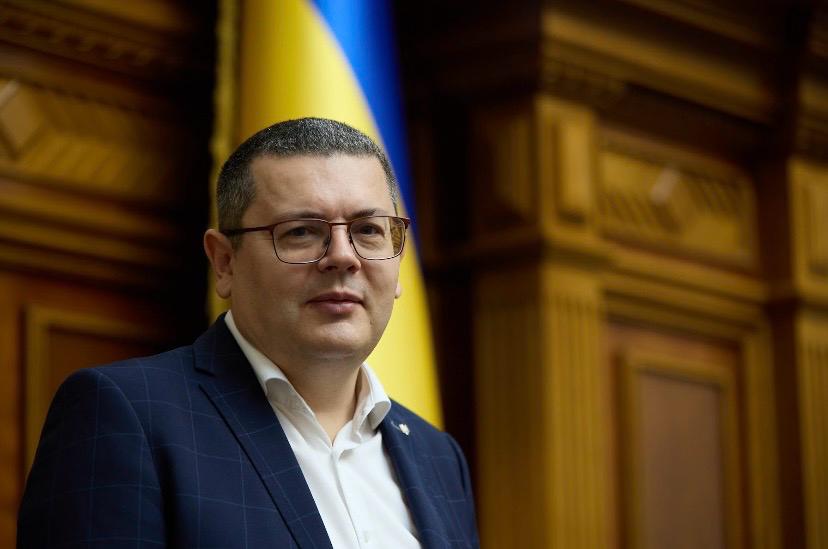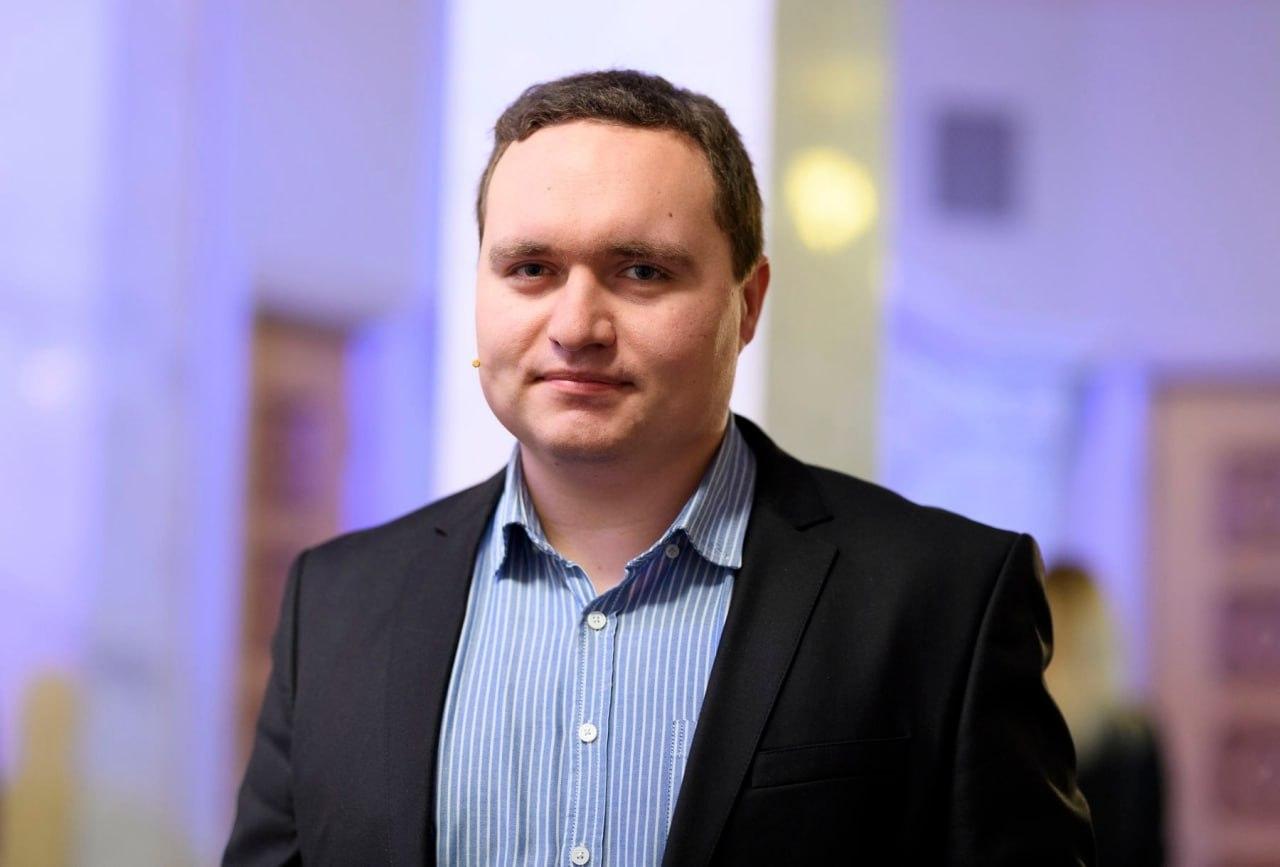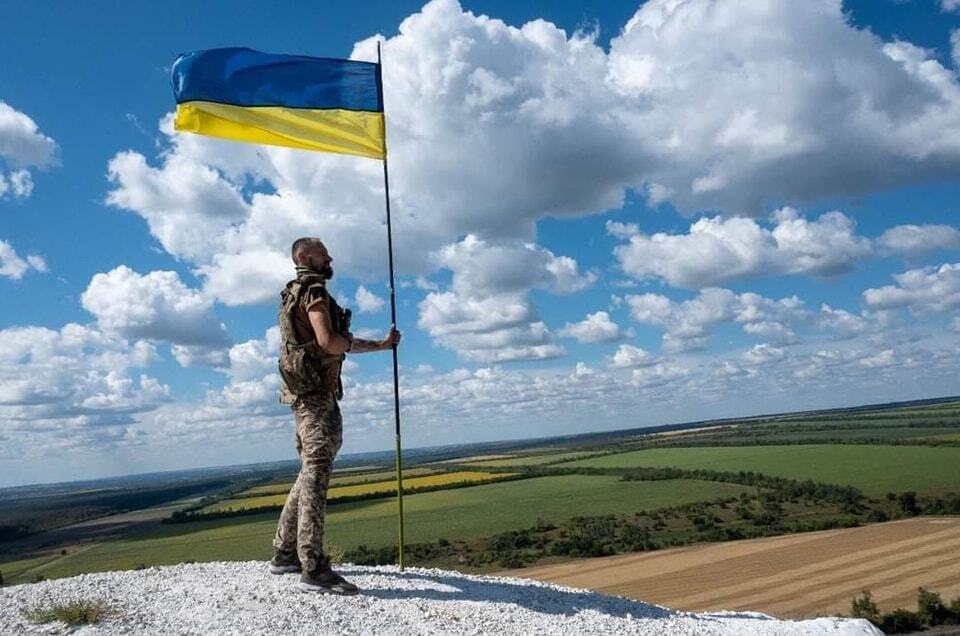The Russian war in Ukraine has dragged on for 11 years, and politicians worldwide are looking high and low to bring it to a close.
The problem, however, hinges on sharply different end goals: Russia wants to hold onto occupied Ukrainian lands and prevent Ukraine from joining NATO. In contrast, the Ukrainian government refuses to cede any territories established by its 1991 borders and relentlessly pursues NATO accession.
Reaching these goals depends on support from the international community, particularly for Ukraine, which won't sustain the Russian aggression for much longer without military backing from the US and the European Union.
Leaked details of Zelenskyy's victory plan
In a bid to secure peace on its terms, Ukraine has crafted a victory plan, which President Zelenskyy has just presented in the US to President Biden, Congress, and presidential candidates Kamala Harris and Donald Trump.
While full details have not been publicly released, the plan reportedly contains 4-5 key points to be implemented during the war, with some elements potentially extending into the post-war period.
According to Zelenskyy's statements to journalists on 20 September, the plan includes defining Ukraine's position in the global security architecture, continuing military operations (including the Kursk operation, isolation of Crimea, and destruction of the Russian Black Sea Fleet), strengthening Ukraine's military capabilities, and fostering joint economic development with partners. Zelenskyy emphasized that the plan does not include direct negotiations with Russia, but rather focuses on strengthening Ukraine's position to compel Russian leadership to negotiate on fair terms.
Zelenskyy also mentioned the existence of a "Plan B" should the US not fully support the proposed strategy. The Ukrainian president said the plan is designed to force Russia to end the war through diplomacy, telling journalists: "If partners support it, it will definitely make it easier to force Russia to end the war diplomatically."
Bloomberg, citing unnamed sources, reported the plan calls for inviting Ukraine to join NATO, ongoing US commitments to supply advanced weapons, a clear path to EU membership, and economic/security arrangements.
Zelenskyy's office has also said that a NATO membership invitation is part of the plan.
The Times newspaper outlined four main points, based on its sources: security guarantees for Ukraine similar to NATO's mutual defense agreement, continuation of operations in Russia's Kursk Oblast to strengthen Ukraine's negotiating position, requests for specific advanced weapons, and international financial assistance for Ukraine's economy.
A key element appears to be allowing Ukraine to strike Russian military targets inside Russia using Western-supplied long-range weapons, though the US has so far been reluctant to permit this, according to the Wall Street Journal.
Recent reports indicate that US officials are far from impressed, pointing to the plan's lack of a clear strategy for defeating Russia. According to the Washington Post sources, it offers little more than Kyiv's persistent pleas for more weapons and removing restrictions on applying Western-supplied long-range missiles.
With the specifics of Zelenskyy's victory plan still under wraps, Euromaidan Press talked to the experts about Ukrainian peace and victory plans and examined what Ukraine needs to make it work at a time when the nation's future hangs in the balance.
Freezing the conflict lets Russia gear up for another attack
Attempts at peace between Ukraine and Russia were made before the 2022 full-scale invasion, most notably through the Minsk Agreements of 2014-15.
The agreements called for a cease-fire for both sides but controversially demanded the representation of Russian occupation authorities in Ukraine's parliament – an unacceptable condition to the country as it implied recognizing entities under Russian control.
What these agreements ultimately resulted in was a frozen conflict, which brought Ukraine a brief period of relative calm before the new Russian full-scale attack broke out with increased intensity.
Oleksandr Merezhko, an international lawyer and chair of Ukraine's Foreign Affairs Committee, argues that a frozen conflict would allow Russia to regroup, strengthen its military, and prepare for future aggression. He warns that this scenario could leave Ukraine even in a more vulnerable position than it currently faces.
Merezhko asserts that what is actually needed is to "defeat Russia and secure Ukraine's victory." The pressing question persists: how can this be achieved?

The US must hold its ground as the global democracy leader
Merezhko argues that the main obstacle to the plan's success is "the lack of political will" among Ukrainian allies.
He calls for a firmer sanctions regime and criticizes the piecemeal approach to providing aid to Ukraine, which is causing Ukraine to run out of time and fall behind.
"The idea of supporting Ukraine 'for as long as it takes' is logically incomplete. It doesn't have a logical ending. And this ending should be to support Ukraine ‘as long as it takes,’ including defeating Russia and guaranteeing Ukraine's victory. This is how it should sound," the expert says.
He points out that not all Western countries are on board with Russia's total isolation, especially regarding oil and gas. Some nations fear the economic fallout, like a global recession bubbling up from such isolation.
"What we need right now is American leadership in the free world. European countries look up to the US, and they follow their example. That's why it's important to be the true leader of the democratic world and to set a good example for other democratic countries in supporting Ukraine," Merezhko believes.
As an international lawyer, he views Ukraine's victory as part of a broader triumph of international law, which he considers inevitable.
The expert defines Ukraine's victory as "the observance of international law and the restoration of Ukraine's territorial integrity." However, the timing remains uncertain, depending not only on Ukraine but also on its allies and other countries, including those in the Global South.
However, Oleksandr Merezhko voices skepticism about the more "neutral" peace plans proposed by China and Brazil that fall short of addressing the return of Ukrainian territories occupied by Russia.
He criticizes both countries for using what he terms "empty slogans" about peace, arguing that their peace plan fails to address crucial questions such as "Do you support the restoration of Ukraine's territorial integrity or not?" and "Do you support applying international law and the UN Charter to Ukraine and this war or not?"
Victory plan oddly appeals to two rival camps
While some observers like Merezhko find Zelenskyy's victory plan reasonable based on points that have surfaced in the media, other experts raise eyebrows over its clarity and feasibility.
Oleksandr Kraiev, an international relations analyst, points out a peculiar aspect of the plan's reception: it has rallied both Harris and Trump, "absolutely contradictory characters in terms of foreign policy: one is deeply engaged in international affairs, the other leans towards isolationism."
Trending Now
"When a proposal wins support from rival camps, it usually signals one of two things: either it's filled with empty rhetoric, or it's so vaguely worded that anyone can spin it in their favor. In both cases, the result is the same – a plan devoid of real substance or actionable strategy," Kraiev says.
Mapping out the road to Ukraine's victory
Like Merezhko, Kraiev emphasizes that the plan requires strict timelines. However, in his view, the Ukrainian side must set them straight and remain realistic despite the ambitious goals of joining NATO and pushing the Russians out as soon as possible.
"It's impossible to achieve this in a month. It's even impossible to do in several years," Kraiev asserts. The expert outlines two viable approaches:
"Do we [Ukrainians] plan to do this very quickly, but at high cost and significant risk? Or do we plan, putting it conditionally, like Croatia, to take decades but definitely wherever needed to reach the 1991 borders?"
Kraiev refers to the Croatian War of Independence (1991-1995), during which Croatia methodically regained its territories from Yugoslavia in phases.
The process started with a military offensive and then, over a prolonged period, relied on international diplomacy to reintegrate occupied areas, culminating in the peaceful reintegration of occupied areas in 1998.
Meanwhile, Ihor Chalenko, Political scientist and head of the Center for Analysis and Strategies, stresses that Ukraine and its partners must also remember that Russia's 2022 full-scale invasion was an escalation in its ongoing war to drag Ukraine back into its sphere of influence, which the Kremlin launched after the victory of the Euromaidan revolution in 2014.
Therefore, a victory plan to end the full-scale war phase of the war that started in 2022, which would envision terminating full-scale hostilities but still dealing with hybrid threats for years, would require much less resources than tackling the strategic problem of Russia's imperial ambitions, due to which the Kremlin unleashed the war against Ukraine in 2014.
The West wants Ukraine to decide whether it wants to win the war of 2022 or the war of 2014. "At the same time, Kyiv absolutely does not agree with delays in the existing promised aid that has already been agreed upon," Chalenko says.

The issue is that Ukraine remains largely dependent on the US and European countries for these essential "resources." However, perceptions and sentiments among Ukraine's allies have significantly shifted towards war fatigue and calls for peace negotiations with Russia.
The shift was catalyzed by the stark contrast between Ukraine's initial successes in liberating Kharkiv and Kherson and the failed 2023 Ukrainian counteroffensive, exacerbated by the shelling of Ukrainian energy infrastructure.
The West holds back from cutting the cord with Russia
Another key obstacle to the peace plan on Ukrainian terms is the West's reluctance to impose harsher sanctions and cut ties with Russia more decisively.
Chalenko believes this hesitation stems from concerns about the future of relations with Russia, particularly evident in the USA, Germany, Italy, and Hungary.
The expert claims that the cautious policy of controlled escalation to avoid direct NATO-Russia or US-Russia confrontation plays right into Putin's hands.
Recently, the Kremlin has updated Russia's nuclear doctrine, specifying conditions under which nuclear weapons can be applied in scenarios involving non-nuclear states like Ukraine backed by nuclear allies.
The Institute for the Study of War (ISW) interprets these nuclear threats as a ploy to manipulate Western support for Ukraine, particularly regarding the use of Western-supplied weapons for long-range strikes into Russia's rear.
"This illustrates their fear of cutting the umbilical cord. The Western leaders fear that doing so would empower China and push Russia completely into its embrace. However, China already wields considerable control over Russia. Yet, some still think Russia can be pulled back to Europe," Chalenko claims.
Ukrainian victory is crucial for global democracy
Despite the hurdles, Ihor Chalenko remains optimistic about the plan's potential impact.
"I am absolutely convinced the victory plan will deliver a defined efficiency coefficient. While our partners may not fully accept it for objective reasons, we [Ukraine] will still have positive, practical solutions resulting from its presentation," he says.
The expert claims that the struggle against Russian aggression is crucial not only for Ukraine but for the survival of Western democracy as a whole. He believes that without adequate support from Ukraine's allies, Russian forces might advance into Poland, the Baltic countries, and potentially Finland.
As the anticipation ramps around how the US will react to the proposed plan, Ukraine is actively weighing various options and scouting for peace intermediaries. In an unexpected twist, it has reached out to India for potential mediation in the war with Russia.
While India has historically maintained a non-aligned stance and steered clear of condemning the Russian aggression, Prime Minister Modi has voiced support for Ukraine's sovereignty and territorial integrity.
Some Indian officials suggest the country could step up as the host for the next peace summit on Ukraine, most likely bringing Russia into the fold, too.
Related:
- Ukraine’s NATO invitation part of Zelenskyy’s Victory Plan, his office confirms
- Kremlin willing to study Zelenskyy’s victory plan only if published from “official sources”
- The New Yorker: Zelenskyy warns of “very long war” if Biden doesn’t support his victory plan
- CNN: Zelenskyy says long-range weapons ban lift key part of his “Victory Plan”

